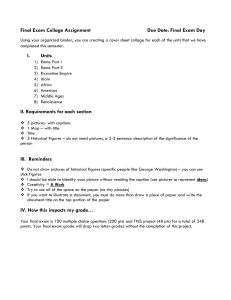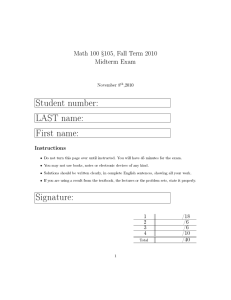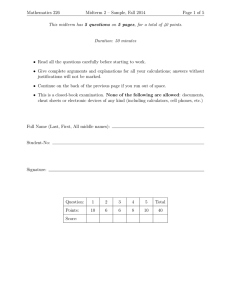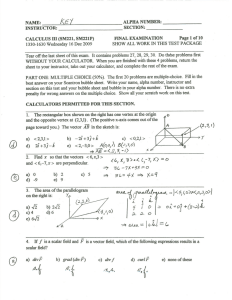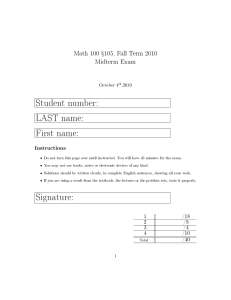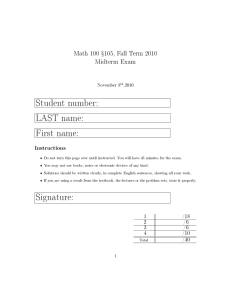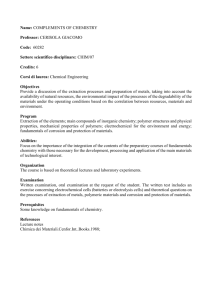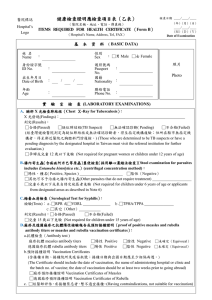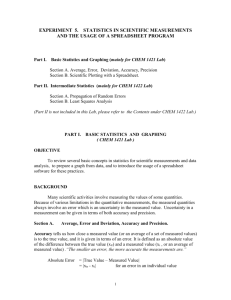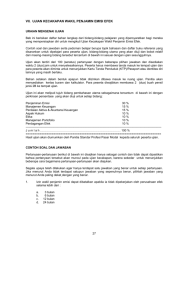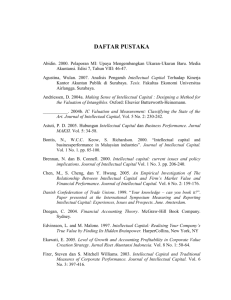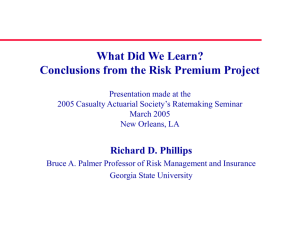Sample Syllabus - Rutgers Business School
advertisement
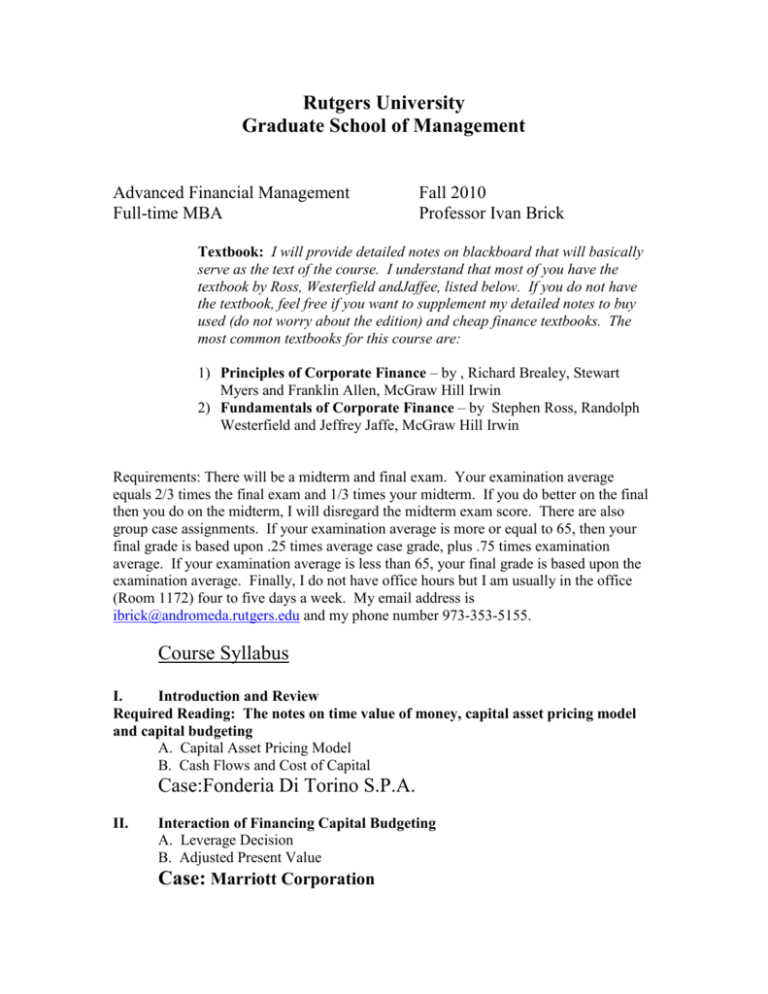
Rutgers University Graduate School of Management Advanced Financial Management Full-time MBA Fall 2010 Professor Ivan Brick Textbook: I will provide detailed notes on blackboard that will basically serve as the text of the course. I understand that most of you have the textbook by Ross, Westerfield andJaffee, listed below. If you do not have the textbook, feel free if you want to supplement my detailed notes to buy used (do not worry about the edition) and cheap finance textbooks. The most common textbooks for this course are: 1) Principles of Corporate Finance – by , Richard Brealey, Stewart Myers and Franklin Allen, McGraw Hill Irwin 2) Fundamentals of Corporate Finance – by Stephen Ross, Randolph Westerfield and Jeffrey Jaffe, McGraw Hill Irwin Requirements: There will be a midterm and final exam. Your examination average equals 2/3 times the final exam and 1/3 times your midterm. If you do better on the final then you do on the midterm, I will disregard the midterm exam score. There are also group case assignments. If your examination average is more or equal to 65, then your final grade is based upon .25 times average case grade, plus .75 times examination average. If your examination average is less than 65, your final grade is based upon the examination average. Finally, I do not have office hours but I am usually in the office (Room 1172) four to five days a week. My email address is ibrick@andromeda.rutgers.edu and my phone number 973-353-5155. Course Syllabus I. Introduction and Review Required Reading: The notes on time value of money, capital asset pricing model and capital budgeting A. Capital Asset Pricing Model B. Cash Flows and Cost of Capital Case:Fonderia Di Torino S.P.A. II. Interaction of Financing Capital Budgeting A. Leverage Decision B. Adjusted Present Value Case: Marriott Corporation C. Leasing Case: Xteria D. Bond Refunding E. Subsidized Loans III. Mergers and Acquisitions A. Reasons for Mergers B. Financing and Tax Implications C. Leverage Buyouts D. Target Defense Mechanisms CASE: Consolidated Rail Corp IV. Financing Characteristics A. Issuance of Securities B. Debt Securities C. Debt Maturity
